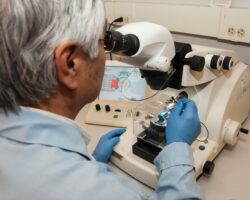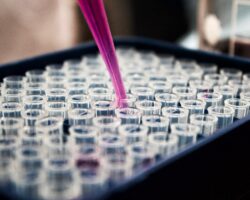
- Introduction to Peptide Research
- Importance of Ethics in Scientific Research
- Ethical Considerations in Peptide Research
- Ethical Guidelines for Conducting Peptide Research
- Potential Ethical Concerns in Peptide Research
- Case Studies: Ethical Dilemmas in Peptide Research
- Ethical Responsibilities of Researchers in Peptide Research
- Conclusion: Upholding Ethics in Peptide Research
Introduction to Peptide Research
In this Introduction to Peptide Research, we will explore the fascinating world of peptides and their significance in scientific research. Peptides, consisting of amino acids, play a crucial role in various biological processes and have garnered significant attention in recent years. As researchers delve deeper into the potential applications of peptides, it becomes imperative to examine the ethical considerations surrounding their study and utilization.
Importance of Ethics in Scientific Research
Ethics forms the foundation of scientific research, ensuring that studies are conducted in a responsible and unbiased manner. When it comes to peptide research, upholding ethical principles is of utmost importance to safeguard the well-being of both human subjects and the scientific community as a whole. By adhering to ethical guidelines, researchers can maintain trust, integrity, and credibility in their work.
Ethical Considerations in Peptide Research
Peptide research presents unique ethical considerations that require careful examination. One such consideration is the informed consent of human participants involved in clinical trials or studies. It is crucial to ensure that participants fully understand the potential risks and benefits associated with peptide research and provide their consent willingly. Additionally, issues related to privacy, confidentiality, and data protection must be addressed to safeguard the rights of research subjects.
Ethical Guidelines for Conducting Peptide Research
Various professional bodies and institutions have established ethical guidelines to govern the conduct of peptide research. These guidelines emphasize the importance of transparency, integrity, and respect for human dignity. Researchers must ensure that their studies are designed and executed in a manner that minimizes risks, maximizes benefits, and upholds the principles of fairness and justice.
Potential Ethical Concerns in Peptide Research
Peptide research may raise several ethical concerns, particularly in areas such as experimentation on animals, potential misuse of findings, or conflicts of interest. It is crucial for researchers to anticipate and address these concerns proactively, prioritizing the well-being of all stakeholders involved, including human participants, animals, and the broader society.
Case Studies: Ethical Dilemmas in Peptide Research
Examining real-life case studies can shed light on the complexity of ethical dilemmas in peptide research. These studies serve as valuable learning experiences, allowing researchers to navigate ethical challenges and make informed decisions. By analyzing such cases, we can gain a deeper understanding of the ethical intricacies surrounding peptide research and identify best practices to guide future investigations.
Ethical Responsibilities of Researchers in Peptide Research
Researchers engaged in peptide research bear the responsibility of upholding ethical standards throughout their work. This includes conducting rigorous and transparent studies, ensuring the welfare of research subjects, maintaining data integrity, and promoting responsible dissemination of findings. By fulfilling these ethical responsibilities, researchers contribute to the advancement of knowledge while safeguarding the rights and well-being of those involved.
Conclusion: Upholding Ethics in Peptide Research
In conclusion, ethics in peptide research is of paramount importance to maintain the integrity and credibility of scientific investigations. By adhering to ethical guidelines and addressing potential concerns, researchers can ensure that their work contributes to the betterment of society while upholding the principles of fairness, respect, and responsible conduct. By continuously reflecting on and improving ethical practices, we can foster a culture of integrity and trust in the field of peptide research.
This brings us to the end of our comprehensive exploration of ethics in peptide research. As new advancements and challenges arise, it is crucial for researchers to remain vigilant and committed to upholding ethical principles. Only through responsible and ethical practices can we unlock the full potential of peptides while ensuring the well-being of all those involved in the research process.


